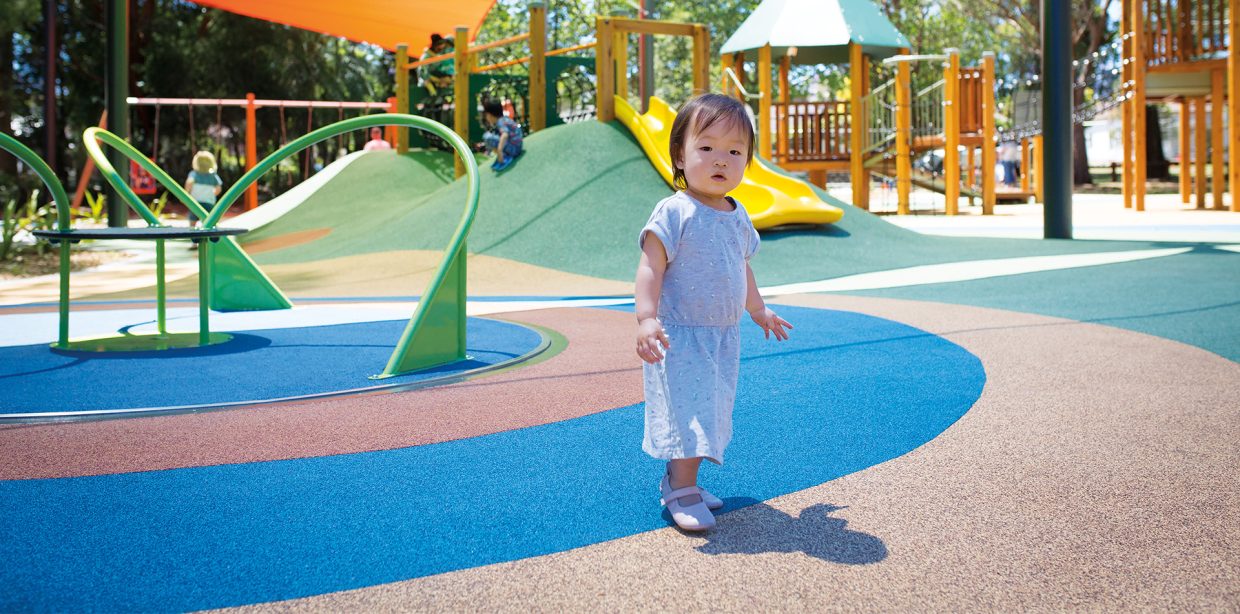
Playgrounds are essential spaces for children’s physical, social, and cognitive development. However, safety concerns loom large in these areas, with falls being one of the most common causes of injuries. In Australia, ensuring playground safety includes selecting the right soft fall surface. With numerous options available, ranging from natural materials to modern synthetic solutions, making the right choice is crucial. Let’s delve into the main points to consider when selecting the safest soft fall playground surface in Australia.
Compliance With Australian Standards
First and foremost, any soft fall surface installed in an Australian playground must comply with the relevant safety standards. The Australian Standard AS/NZS 4422:2016 specifies the requirements for playground surfacing, including critical fall height, impact attenuation, and durability. Adherence to these standards guarantees that the selected surface provides the highest level of protection against injuries caused by falls.
Impact Attenuation
Attenuation of impact pertains to the capacity of a surface to absorb and distribute the energy produced during a fall, thereby diminishing the likelihood of bodily harm. Different soft fall materials have varying levels of impact attenuation, with some providing better shock absorption than others. For example, rubber and synthetic surfaces typically offer superior impact attenuation compared to natural materials like sand or wood chips. When choosing a soft fall surface, prioritise options that provide adequate impact attenuation, especially for playgrounds with equipment at greater heights.
Durability And Longevity
Australian playgrounds are subject to diverse weather conditions, including intense sunlight, heavy rainfall, and temperature fluctuations. As a result, durability becomes an essential consideration when choosing a gentle fall surface. The chosen material should withstand constant use, UV exposure, and moisture without deteriorating or becoming hazardous. Additionally, consider the maintenance requirements of each surface option to ensure its longevity and safety over time.
Accessibility And Inclusivity
By promoting accessibility for children of all abilities, inclusive playground design ensures that all individuals can safely engage in play activities. When selecting a soft fall surface, consider its impact on accessibility. Surfaces should be firm and stable, allowing wheelchair users and individuals with mobility aids to navigate the playground easily. Additionally, choose materials that minimise tripping hazards and accommodate diverse sensory needs to create an inclusive play environment for all children.
Environmental Considerations
Environmental sustainability is increasingly important in modern playground design. When choosing a soft fall surface, consider the environmental impact of the materials used. Opt for options made from recycled or eco-friendly materials that minimise waste and carbon footprint. Additionally, prioritise surfaces that can be recycled or repurposed at the end of their lifespan to reduce environmental impact further.
Cost And Budget Constraints
While safety should be the primary consideration, budget constraints often play a significant role in playground development projects. Evaluate the cost-effectiveness of different soft fall surface options, taking into account initial installation costs, long-term maintenance expenses, and lifespan. Although certain materials may initially have a higher cost tag, they may ultimately be more cost-effective due to reduced maintenance needs and prolonged lifespan.
Local Climate And Site Conditions
The climate and site conditions of the playground location should also influence the choice of soft fall surface. Materials that retain heat or absorb water excessively may not be suitable for hot and humid regions or areas prone to heavy rainfall. In order to identify any environmental factors that may have an impact on the performance and safety of the selected surface material, it is imperative to carry out a site assessment.
Conclusion
A number of factors must be taken into account when determining which soft fall playground surface is the safest in Australia. These include adherence to safety standards, impact attenuation capabilities, durability, accessibility, environmental sustainability, cost, and local site conditions. By prioritising safety while balancing other factors, playground designers and administrators can create inclusive and engaging play spaces that promote children’s well-being and development for years to come.